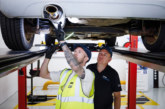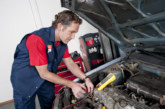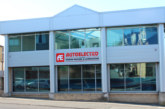A reflection and insight into DENSO to mark 75 years
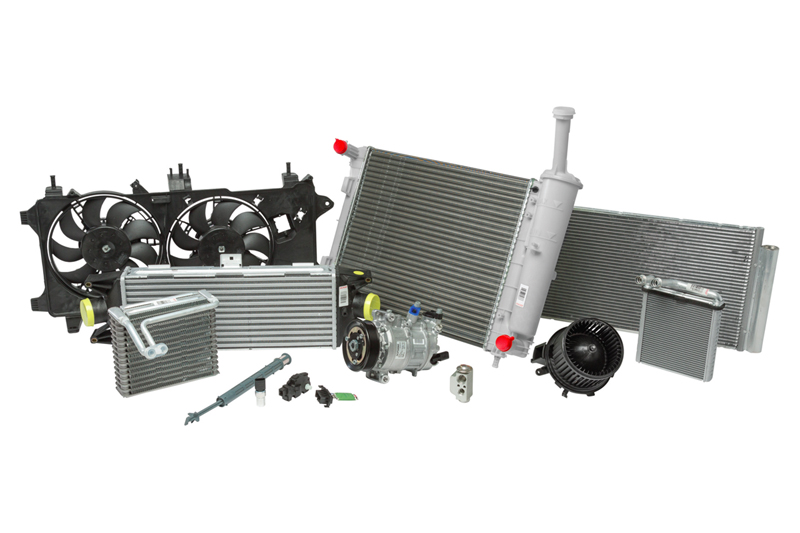
As DENSO marks its 75th birthday, we thought we’d take a trip down memory lane and discover the journey has been on, where it stands today and what it hopes to achieve in the future. Kevin Peacocke, sales manager at DENSO Aftermarket UK and IE, answers our questions.
Q. DENSO has a rich history spanning 75 years – how has the company evolved over time?
A. “In 1949, NIPPON ELECTRICAL EQUIPMENTS CO. LTD split from Toyota Motor. Co. Ltd and established itself as a separate entity, initially called NIPPONDENSO, before becoming DENSO in 1996.
“Throughout the fifties and sixties, DENSO established the foundations of today’s corporation with the expansions of its service plants, technical centres and production plants. It also established its ‘quality first’ culture that culminated with the company being awarded the Deming Prize in 1961.
“The seventies and eighties were exciting decades with an international expansion and the opening of its European headquarters in the Netherlands in 1973. Seventy-five years and 39,000 patents later, DENSO now encompasses 193 companies in 35 countries, but its goals remain revolutionary, and its products are still relied upon by millions of people across the globe.”
Q. What are some of the key technological advancements DENSO has delivered over the last seven-and- a-half decades and what is their impact today?
A. “Over the years, several groundbreaking inventions have been made, including the first spark plug with a platinum electrode in 1974, and the world’s first U-groove electrode spark plug in 1975.
“In 1991, the first glow plug with a ceramic heating element was introduced, followed by the creation of the QR code in 1994. The first plug-in type mass air flow sensor came in 1996.
“The 2010s saw the introduction of hybrid and flat wiper blades and the twin tip spark plug, alongside an HVAC system with independent climate control in 2012. In 2013, a common rail diesel injection system improved fuel efficiency and emissions, and in 2016, the first NOx-A/F integrated Lambda sensor was invented.”
Q. Can you discuss any major challenges DENSO has faced and how the company has overcome them?
A. “In 1933, an automobile department was established within Toyoda Automatic Loom Works, Ltd. (currently Toyota Industries Corporation) and two years later, executive director, Kiichiro Toyoda, instructed Ryuichi Suzuki – who would later become a member of the board at DENSO – to take on the challenge of producing electrical equipment in-house.
“However, developing such equipment internally became an extremely difficult task, and there was a growing opinion that promoting the in-house production of such equipment was not a task the company should undertake. Nevertheless, Mr. Suzuki persuaded Mr. Toyoda to allow him to continue his efforts and sometime after doing so, the enthusiasm and the persistence of Mr. Suzuki and the young engineers on his team led to the official adoption of electrical equipment in Toyota vehicles and paved to way to the birth of NIPPONDENSO, in 1949.
“Today, DENSO is also facing challenges, such as climate change and conservation of the environment. To rise to these challenges, DENSO has set a list of commitments which include its vision of ZERO (ZERO Carbon emissions and ZERO traffic fatalities) and the company is focusing its resources on activities related to ‘green’ and ‘peace of mind’ which means to be of service to the planet and its people.”
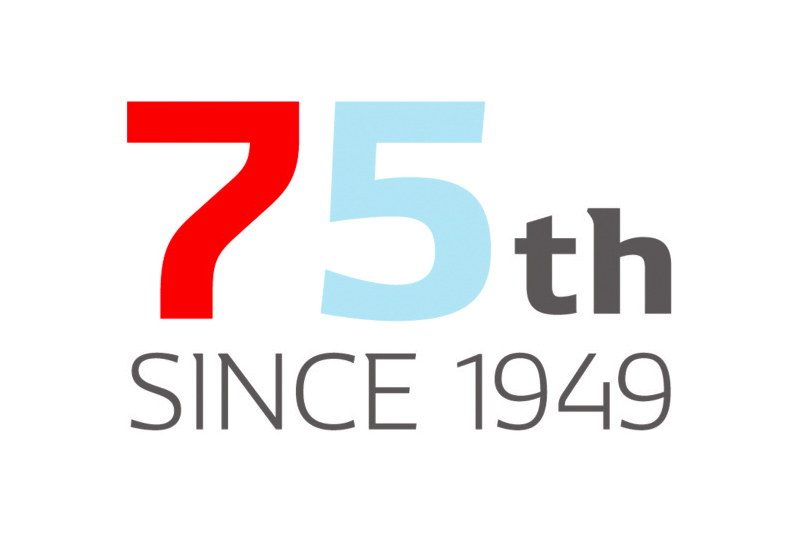
Q. How does DENSO ensure that its aftermarket products meet the same high standards as those supplied to OEMs?
A. “DENSO is committed to follow its ‘quality first’ principle in manufacturing its products and based on information collected by sales and technology departments of customers, it is continuously making efforts to ensure that its customers are satisfied with the level of quality it delivers.
“In addition, to provide the best products for customers around the world, the DENSO Group has established technical centres in Japan, the United States, Germany, Thailand, China, India, and Brazil. This has allowed the group to put into place a global structure that allows for product development, quality testing, and quality evaluation, which can be carried out in accordance with the characteristics of each region.
“The quality of aftermarket parts is guaranteed because every component that leaves a DENSO factory has been designed with precision, manufactured to the strictest OE standards or above, and subjected to rigorous safety and performance tests. In the end, it all comes down to quality — that’s what the DENSO name stands for.”
Q. As the automotive industry continues to evolve with trends, like electrification, ADAS and even autonomous vehicles, how is DENSO adapting to stay ahead?
A. “DENSO plans to invest €63 billion in research and development over the next decade, focusing on achieving zero emissions and zero traffic fatalities in the mobility and society sector.
“The key areas of investment include electrification technologies, where the company will develop advanced EV systems and autonomous driving, aiming to enhance the safety and efficiency of autonomous vehicle technologies.
“Additionally, DENSO will innovate in vehicle-to everything (V2X) communication systems and leverage AI for smarter automotive solutions, while prioritising green technologies to reduce environmental impact and promote sustainability.
“DENSO’s important OE advances include the development of high-efficiency electric powertrains and components, as well as innovations in battery technology to improve energy density and charging speeds. The company will also introduce advanced thermal management systems for EVs, expand electric motor production capabilities to meet growing EV demand, and integrate renewable energy sources into vehicle systems to enhance overall efficiency.
“In 2023, 16 DENSO European manufacturing companies achieved carbon neutrality for Scope 1 and 2 emissions, in line with DENSO Group’s ‘green’ and ‘peace of mind’ strategies. Looking ahead, DENSO aims to achieve carbon neutrality in its manufacturing activities without relying on carbon credits by 2035.”
Q. How does DENSO support its professional motor factors and distributors in terms of training and product knowledge to ensure they can effectively serve their customers?
A. “DENSO has a team of sales and technical representatives that work with its wholesale customers to help and advise professionals on best practice matters and installation issues.
“It also has a comprehensive online technical resource where users can access parts data and catalogue information, but also a huge amount of technical content including videos and presentations. This portal is where technicians can register for the League of True Mechanics (LOTM) competition, which is a popular pan- European competition that combines ongoing online training with some healthy competition to find regional and then an overall European winner.
“Furthermore, we have a new training module in LOTM on hybrid and EV vehicles, explaining the basics and how to work safely with those vehicles. With this training, DENSO aims to support independents in the new era of electrification, which can be quite challenging for them to keep up with skills and knowhow.”
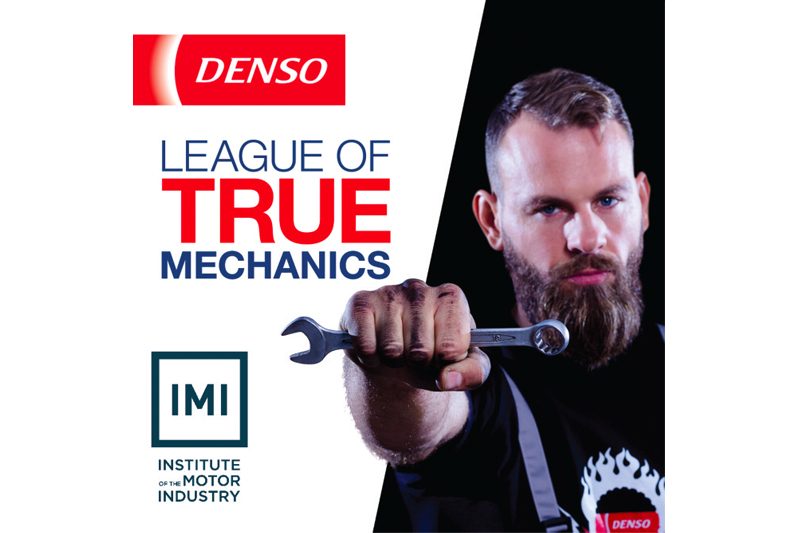
Q. In celebrating DENSO’s 75th anniversary, what future goals or aspirations does the company have?
A. “DENSO aims to transition from being “a tier one supplier that supports the auto industry” to a “tier one supplier that supports a mobility-centred society.” To achieve this, the company is pursuing three key initiatives:
“First, in the evolution of mobility, DENSO is focused on improving its electrification business by enhancing product competitiveness, expanding its product lineup, and refining manufacturing processes to drive innovation in automotive technologies. The company is also actively developing autonomous driving and ADAS, with a strong emphasis on boosting product competitiveness and advancing technology.
“Second, DENSO is strengthening its fundamental technologies by accelerating technology development through global strategic partnerships and collaborations. The company is concentrating on enhancing its expertise in semiconductors and software, which are crucial for supporting mobility advancements and creating new value in the industry.
“Finally, in creating new value, DENSO is expanding its business beyond the automotive sector, with a strong focus on commercialisation in various industries, including food and agriculture. The company is leveraging its automotive technologies to explore new business opportunities, such as entering the hydrogen business, and applying its manufacturing principles to innovate in the food and agriculture sector.”


